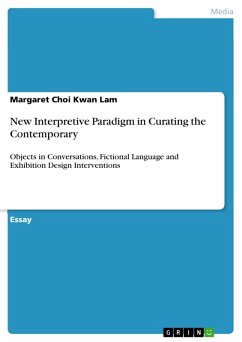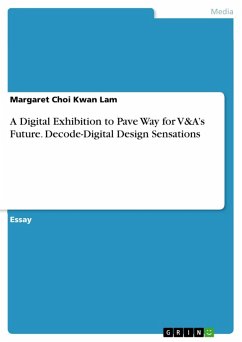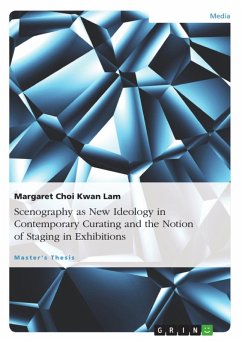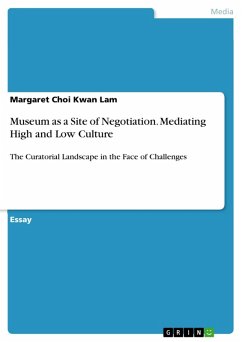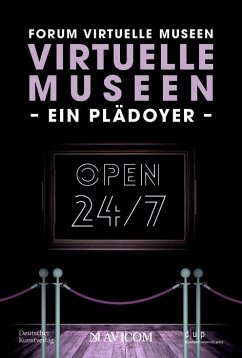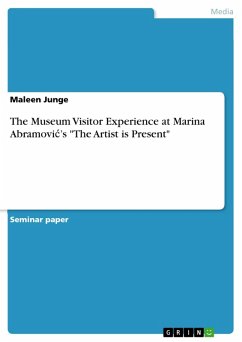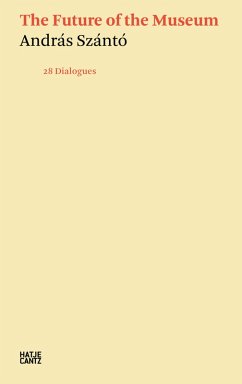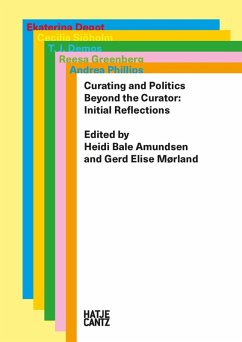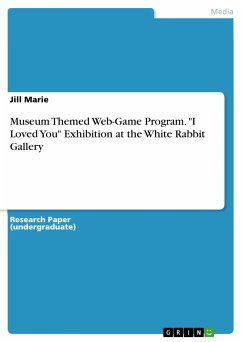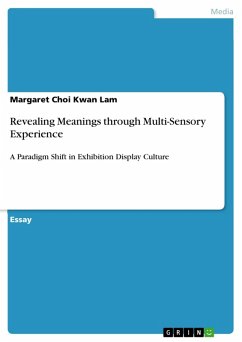
Revealing Meanings through Multi-Sensory Experience (eBook, PDF)
A Paradigm Shift in Exhibition Display Culture
Sofort per Download lieferbar
Statt: 17,95 €**
15,99 €
inkl. MwSt. und vom Verlag festgesetzt.
**Preis der gedruckten Ausgabe (Broschiertes Buch)
Alle Infos zum eBook verschenkenWeitere Ausgaben:

PAYBACK Punkte
0 °P sammeln!
Essay from the year 2012 in the subject Art - Miscellaneous, grade: Merit, Kingston University London (Kingston University London, in Partnership with the Design Museum, London, U.K.), course: MA Curating Contemporary Design, language: English, abstract: Displaying art objects in exhibition is not only an artistic expression in the heart of curating, but it is also an essential interface for curators to present stories and convey meanings. How to engage people beyond purely-visual-appeals is always a top-of-mind-question embedded in curators' mind, and the discourse has become a major concern ...
Essay from the year 2012 in the subject Art - Miscellaneous, grade: Merit, Kingston University London (Kingston University London, in Partnership with the Design Museum, London, U.K.), course: MA Curating Contemporary Design, language: English, abstract: Displaying art objects in exhibition is not only an artistic expression in the heart of curating, but it is also an essential interface for curators to present stories and convey meanings. How to engage people beyond purely-visual-appeals is always a top-of-mind-question embedded in curators' mind, and the discourse has become a major concern among pioneers in recent times. Over the decade, frontier exhibitioners were attempting to breakthrough from a purely vision-dominated museum culture. Some exhibition experiments were successful, and the movement has fundamentally changed the way curators think about exhibition-making, including the ultimate purpose of displaying objects. The paradigm shift actually rings the bells and requires contemporary curators to pay attention to. It is crucial to realize that the recent success was not only about the artistic sense of the artists, but it is also the revolutionary belief of the frontier curators that has made it happen. This essay aims to uncover the distinctive differences in the core beliefs of multi sensory approaches, in order to find out dynamic answers to new display strategies. Cases include: Partners (Haus DerHunst, Munich, 2003), Rain Room (Barbican Centre, London, 2010), and HeinerGoebbels-Stifter's Dinge (Ambica P3, London, 2012).
Dieser Download kann aus rechtlichen Gründen nur mit Rechnungsadresse in A, B, BG, CY, CZ, D, DK, EW, E, FIN, F, GR, HR, H, IRL, I, LT, L, LR, M, NL, PL, P, R, S, SLO, SK ausgeliefert werden.




